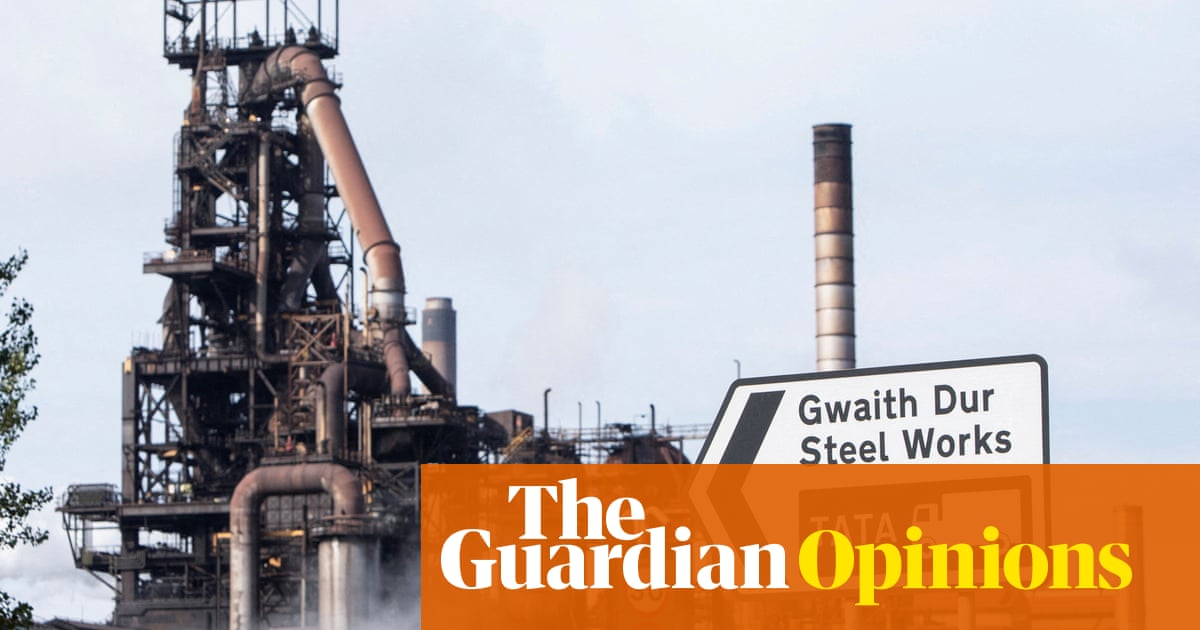
Motorists are expected this year to benefit from an electric car price war – one driven not by the market but by governments in Britain and China. For the first time, the UK has required 22% of new cars sold in 2024 to be electric and, thanks to Beijing’s generous subsidies, cut-price Chinese cars will help meet the demand. There is a trade-off. While Britons can access affordable green motoring, China potentially hoovers up manufacturing prowess and jobs.
Conservative politicians seem relaxed about sending such work and technology abroad. Jeremy Hunt, the chancellor, made the case against protectionism at Davos, a policy he has often criticised. He trusts the invisible hand of the market even when it punches Britons in the gut, such as the blow felt today in south Wales. Tata Steel’s Port Talbot blast furnaces will close with the loss of thousands of jobs, instead of the plant making a planned transition to a greener steel industry.
Britain will become the only major economy unable to make steel from scratch and increasingly reliant on imports. That means well-paid engineering jobs moving to places such as India, while Britain adds to global greenhouse gas emissions as the steel it needs will have to be transported from elsewhere. Instead of bunging Tata £500m to make 2,800 people redundant, it would have been better for the Tories to steal Labour’s £3bn plan to move more slowly away from older coal-powered plants while transitioning to green steel as demand for climate‑friendly products increases.
Although the sector only employs one in 14 workers, Britain is the world’s eighth-biggest manufacturer. Free trade becomes mutually beneficial when countries are at similar levels of industrial development. When a heavyweight such as China trades with a smaller partner, it’s obvious which way goods and cash flow. Britain is globally significant in financial services. Mr Hunt’s economic plan rests on attracting significant capital flows and many new jobs to London, with commensurate higher tax revenues. The flipside will be a stronger pound and a larger trade deficit, further eroding the UK’s share of global manufacturing which in turn reduces employment and tax receipts.
The relative performance between finance and manufacturing ultimately determines the effect on Britain. But for 30 years the City has come out on top, leading to wage stagnation and widening inequalities. From George Osborne’s “march of the makers” to Boris Johnson’s levelling up, Tory ministers have spent a decade pledging they will address Britain’s lopsided economic model only to fail, shamelessly, to keep their promises. Mr Hunt’s suggestion that tax cuts are being readied this year shows that the Conservatives are reverting to type. Handing cash to richer Britons who traditionally vote Tory is an electoral sop, not a serious policy for equitable growth.
Globalisation is slowly unwinding itself as every major industrial power simultaneously attempts to sell more, and buy less stuff from, abroad. A growing surplus of goods floating around the world militates against investment and risks a rise in protectionism. Brazil is furious about Europe’s proposed tariffs on imported carbon‑intensive goods. The US wants to regain its primacy in computer chips by cutting China off from advanced technologies. Britain can’t find itself in such choppy seas with little else than a religious belief in markets. What it needs is an activist state with a smart industrial strategy able to restrain casino‑like speculation that seeks massive profits whatever the cost to wider society.
"low" - Google News
January 20, 2024 at 12:22AM
https://ift.tt/cI2M9wG
The Guardian view on the Tory low tax, free trade pitch: a hard sell in a world that needs neither - The Guardian
"low" - Google News
https://ift.tt/OjH4plZ
Bagikan Berita Ini














0 Response to "The Guardian view on the Tory low tax, free trade pitch: a hard sell in a world that needs neither - The Guardian"
Post a Comment